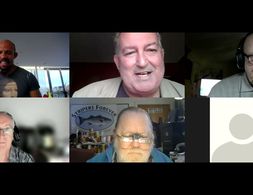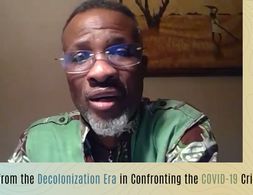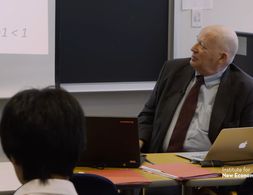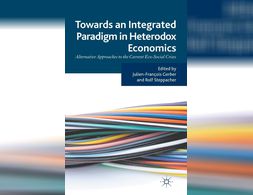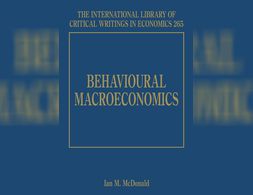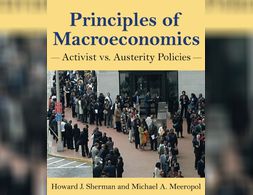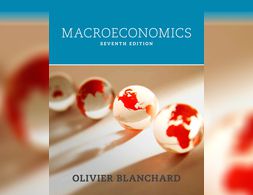✕
294 results
This lecture was held in the context of the a two day conference called Which pluralism for thinking about how to achieve a more sustainable and resilient economy The practices institutions and system logics of today s economy are not suitable for appropriately addressing fundamental human needs The climate crisis …
Tetteh Hormeku-Ajei, member of the Post-Colonialisms Today Working Group, discusses the role of the state in Africa during the COVID-19 pandemic.
After completing the module, participants should be able to understand the economic consequences of gender inequality. They should be able to explain the contradictions between capital and care, analyze the labor market with a gender perspective and develop the ability to describe phenomena such as public policies taking into account "gender" as a category of analysis.
The world has seen the emergence of a rather different system of international lender of last resort organized as a network of central bank liquidity swap lines largely limited to the core countries of the Global North In this system central banks swap their own currency for dollars which they …
Drawing on Gramsci s Marxist Political Economy Mike Davis situates the War in Ukraine within the general condition of a crisis of capitalist hegemony The key argument is that the pathological and violent situation that we are finding ourselves in today is an expression of the inability of both global …
The workshop deals with the contribution of Plural Economics to the urgently needed change of the economic system towards sustainability and global responsibility.
After completing the module, participants should be able to demarcate and explain different economic approaches to sustainability. They should be able to evaluate the respective concepts based on their contribution to the ecological transformation of the economic system.
This self-paced free course by Perry Merhling guides you to his "Money View" approach that integrates the fields of economics and finance. The course can easily be understood by people interested people without technical economic knowledge or training as it is primarily a tool for analysis.
Commons stand for a plurality of practices ‘beyond market and state’ as the famous Commons scholar – and first female noble prize winner of economics - Elinor Ostrom put it. Their practice and theory challenge classical economic theory and stand for a different mode of caring, producing and governing. Within this workshop we want to dive into theory, practice and utopia of Commons following four blocks...
Source image New Economic Thinking Youtube channel Some years ago in the aftermath of the great financial crisis GFC of the first decade of the twentieth century Paul Krugman famously remarked that most macroeconomics of the last thirty years was spectacularly useless at best and positively harmful at worst It …
From religious leaders to heads of state, everyone is talking about economic inequality. What form can such inequality take in different countries? What impact does it have on society? And why should it matter to you?
Economic theory must distinguish between publicly owned and privately owned property if it is to account for the effect of institutions on the behavior of individuals. Careful study of the theories of Marxists and the real-world experience in the Soviet economy offer important lessons and insight for economic modeling and the ongoing development of theory. In this course, Marxist/Leninist theory and Soviet reality will be studied with an open mind, and with the goal of taking lessons from the case study. To what extent was the Soviet economy an accurate expression of Marxist theory? If Marxism were tried somewhere else would the results be the same?
In a capitalist system, consumers, investors, and corporations orient their activities toward a future that contains opportunities and risks. How actors assess uncertainty is a problem that economists have tried to solve through general equilibrium and rational expectations theory. Powerful as these analytical tools are, they underestimate the future's unknowability by assuming that markets, in the aggregate, correctly forecast what is to come.
Gender, Development, and Globalization is the leading primer on global feminist economics and development. Lourdes Benería, a pioneer in the field of feminist economics, is joined in this second edition by Gunseli Berik and Maria Floro to update the text to reflect the major theoretical, empirical, and methodological contributions and global developments in the last decade.
This book provides a new methodological approach to money and macroeconomics. Realizing that the abstract equilibrium models lacked descriptions of fundamental issues of a modern monetary economy, the focus of this book lies on the (stylized) balance sheets of the main actors. Money, after all, is born on the balance sheets of the central bank or commercial bank.
The human imprint on the biosphere has become so pronounced in recent years that there has been talk of a new geological era, the 'Anthropocene'.
This brief but comprehensive account of the Post Keynesian approach to economic theory and policy is ideal for advanced undergraduate and postgraduate students in economics, public policy and other social sciences. Clear, non-technical and with a strong policy focus, it will also appeal to all of those who are dissatisfied with mainstream economics and wish to explore the alternatives.
What do modern academic economists do? What currently is mainstream economics? What is neoclassical economics? And how about heterodox economics? How do the central concerns of modern economists, whatever their associations or allegiances, relate to those traditionally taken up in the discipline?
This invaluable volume brings together seminal articles with a significant behavioural content on various areas in macroeconomics.
Finance. Climate. Food. Work. How are the crises of the twenty-first century connected?In "Capitalism in the Web of Life", Jason W. Moore argues that the sources of today's global turbulence have a common cause: capitalism as a way of organizing nature, including human nature.
More than a century after Hartley Withers's "The Meaning of Money" and 80 years after Keynes's "Treatise on Money", the fundamentals of how banks create money still needs explaining and this book meets that need with clear exposition and expert marshalling of the relevant facts.
Principles of Macroeconomics by Howard J. Sherman and Michael A. Meeropol differs from other texts in that this book stresses far more the inherent instability of the macro-economy.
For intermediate courses in economics. A Unified View of the Latest Macroeconomic Events Macroeconomics, Blanchard presents a unified, global view of macroeconomics, enabling readers to see the connections between goods, financial markets, and labor markets worldwide.
The world has changed dramatically in recent years and so has the field of economics, but many introductory economics textbooks have remained stuck in the past. This book provides a new beginning for the study of macroeconomics, fundamentally international in its approach and emphasizing current debates and research trends.
One of the most authoritative authors on the intellectual heritage of John Maynard Keynes, Robert Skidelsky draws a sketch of the great man's economic thinking both accessible and insightful.
Those who control the world’s commanding economic heights, buttressed by the theories of mainstream economists, presume that capitalism is a self-contained and self-generating system.
Modern Monetary Theory and the Birth of the People s Economy The leading thinker and most visible public advocate of modern monetary theory the freshest and most important idea about economics in decades delivers a radically different bold new understanding for how to build a just and prosperous society Stephanie …
In this new book Smith returns to Solow s classic productivity paradox which essentially states that we can see automation everywhere like the spheres of leisure sociality and politics but not in the productivity statistics He examines why labor saving automation in the service age in the Global North has …
The book is a collection of 51 texts by different scholars and activists, who each adds a dimension/perspective to the topics of degrowth and societal transformation. A societal transformation towards a degrowth society is dependent on a lot of ideas coming together and creating change from various starting points within a society. Therefore, the authors are quite diverse and their contributions vary from being philosophical, natural science based, economic, sociological and so forth. Some are specfiically focused on a concept and others are a more broad critique of e.g., capitalism or growth.
This report to the DEFRA summarizes the main approaches, opportunities and difficulties that come with individual carbon trading.
Pluriverse: A Post-Development Dictionary contains over one hundred essays on transformative initiatives and alternatives to the currently dominant processes of globalized development, including its structural roots in modernity, capitalism, state domination, and masculinist values.
"The Company of Strangers: A Natural History of Economic Life" by Paul Seabright is an engaging and informative book that explores the complex relationship between economic behavior and human instincts. Seabright uses real-world examples to present complex ideas in a clear and accessible way. The author argues that the market is not only a place for exchanging goods and services but also relies on trust, cooperation, and social norms.
Three dominant forces worldwide are driving change today in our financial markets: competition, technology and regulation. But their collective impact in reshaping the markets, though they may be viewed individually as desirable or well-intentioned, is producing challenging results that are difficult to predict, hard to control and not easy to understand.
We use cookies on our website. Click on Accept to help us to make Exploring Economics constantly better!

